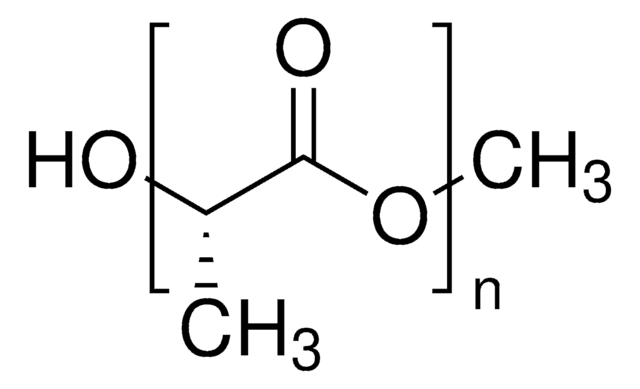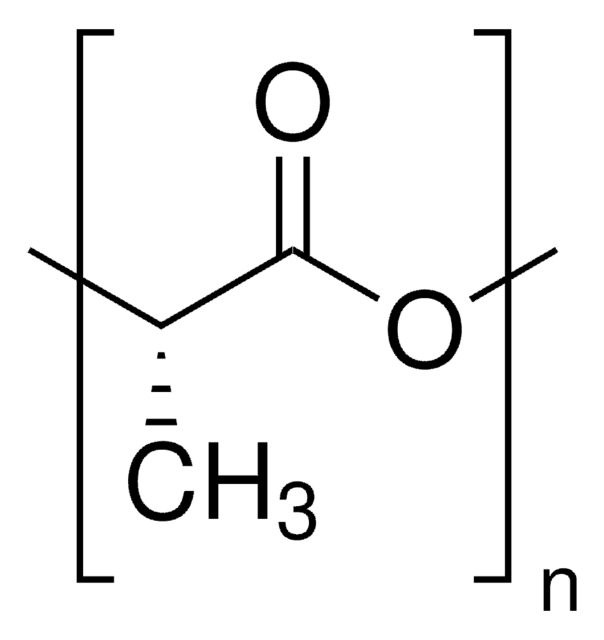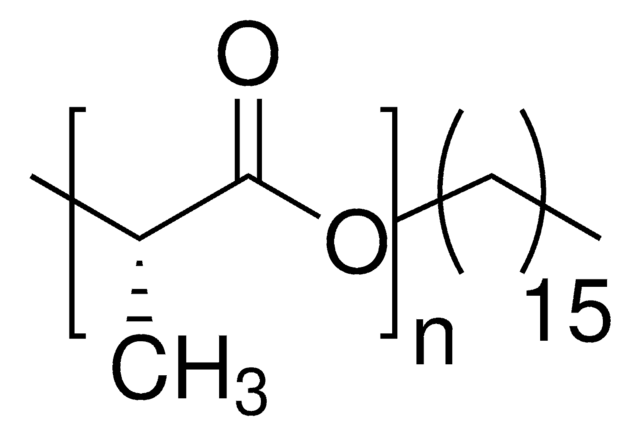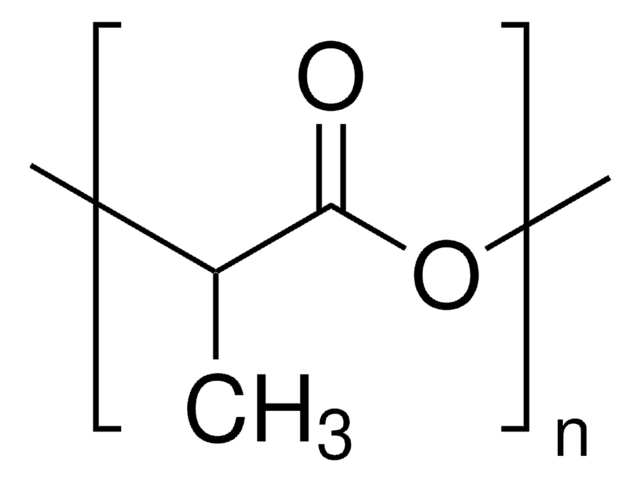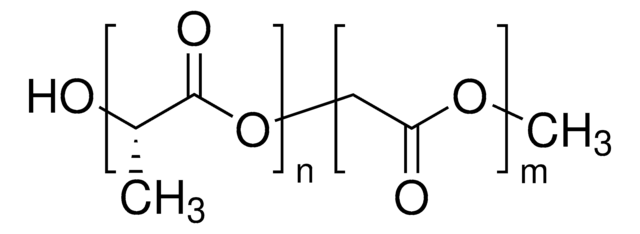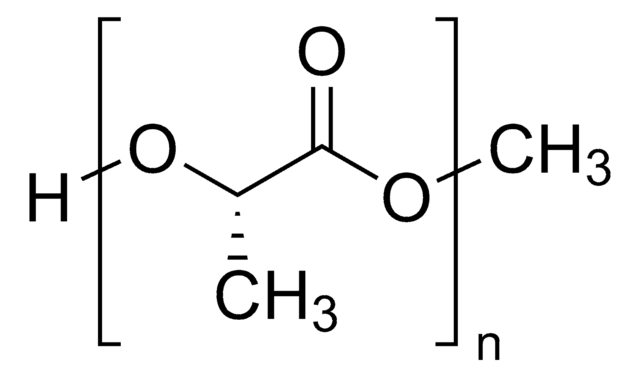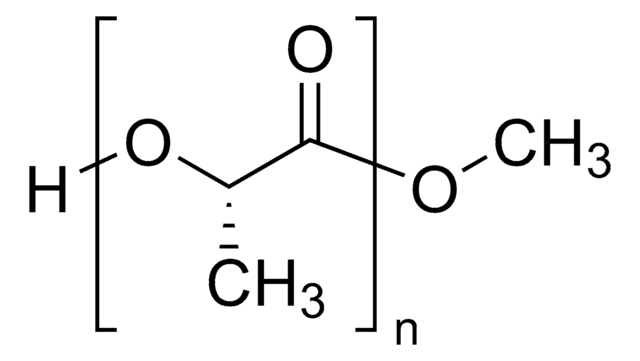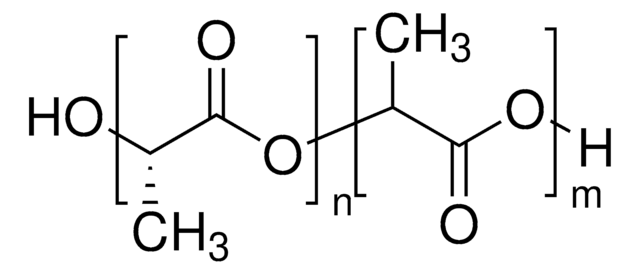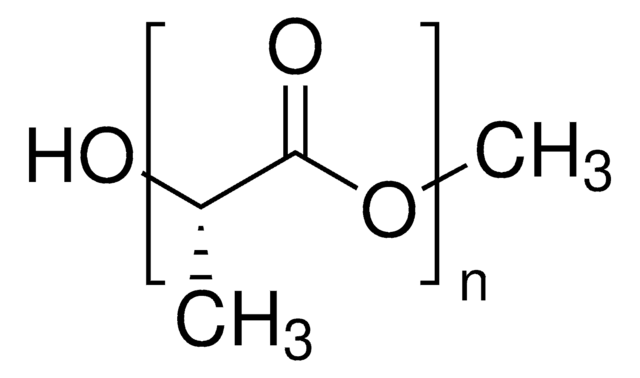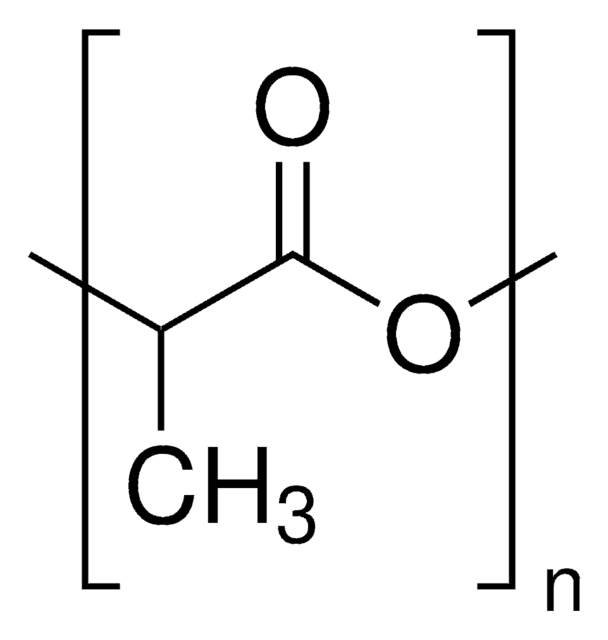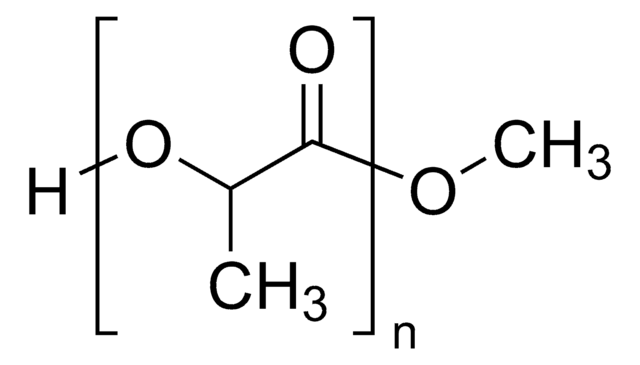769924
Resomer® L 210S, Poly(L-lactid)
ester terminated
Synonym(e):
Resomer® L 210S, PLLA
About This Item
Empfohlene Produkte
Qualitätsniveau
Form
granular
Viskosität
3.3-4.3 dL/g
mp (Schmelzpunkt)
180-185 °C
Übergangstemp.
Tg 60-65 °C
Lagertemp.
2-8°C
InChI
1S/C6H8O4/c1-3-5(7)10-4(2)6(8)9-3/h3-4H,1-2H3/t3-,4-/m0/s1
InChIKey
JJTUDXZGHPGLLC-IMJSIDKUSA-N
Verwandte Kategorien
Allgemeine Beschreibung
Anwendung
Rechtliche Hinweise
Lagerklassenschlüssel
11 - Combustible Solids
WGK
nwg
Flammpunkt (°F)
Not applicable
Flammpunkt (°C)
Not applicable
Analysenzertifikate (COA)
Suchen Sie nach Analysenzertifikate (COA), indem Sie die Lot-/Chargennummer des Produkts eingeben. Lot- und Chargennummern sind auf dem Produktetikett hinter den Wörtern ‘Lot’ oder ‘Batch’ (Lot oder Charge) zu finden.
Besitzen Sie dieses Produkt bereits?
In der Dokumentenbibliothek finden Sie die Dokumentation zu den Produkten, die Sie kürzlich erworben haben.
Kunden haben sich ebenfalls angesehen
Artikel
Professor Nicola Tirelli (Istituto Italiano di Tecnologia, Italy) highlights the microfluidic-assisted method for fabricating well-defined and reproducible nanoparticles for drug delivery research.
Professor Nicola Tirelli (Istituto Italiano di Tecnologia, Italy) highlights the microfluidic-assisted method for fabricating well-defined and reproducible nanoparticles for drug delivery research.
Professor Nicola Tirelli (Istituto Italiano di Tecnologia, Italy) highlights the microfluidic-assisted method for fabricating well-defined and reproducible nanoparticles for drug delivery research.
Unser Team von Wissenschaftlern verfügt über Erfahrung in allen Forschungsbereichen einschließlich Life Science, Materialwissenschaften, chemischer Synthese, Chromatographie, Analytik und vielen mehr..
Setzen Sie sich mit dem technischen Dienst in Verbindung.